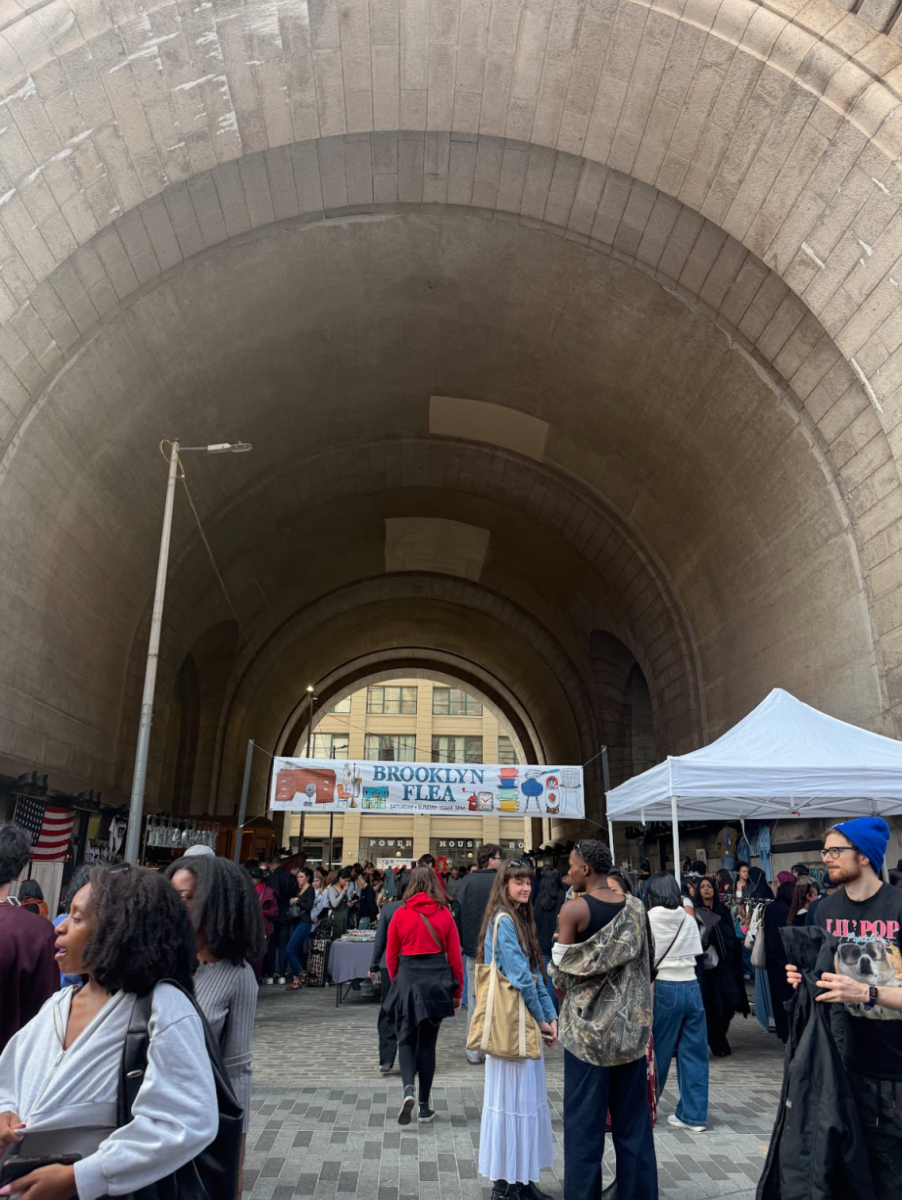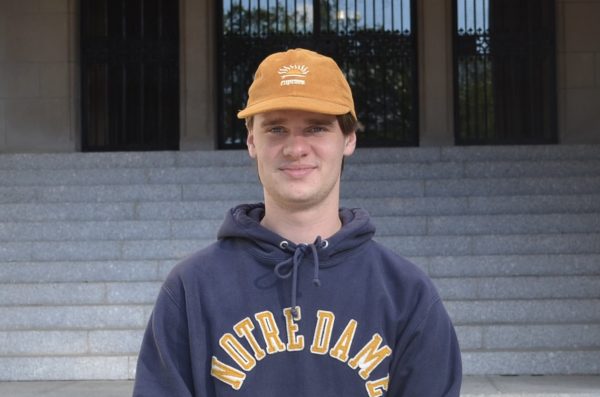When Atlanta-based rapper Playboi Carti released his now-critically acclaimed album “Whole Lotta Red” (WLR) in December of 2020, it was fair to say that all the eyes and ears of the music world became firmly glued on him. In short, Carti’s 24-track album was unlike any musical project that had preceded it. “WLR” featured a complex and wholly novel sound that paired unorthodox drum and 808 patterns with a unique syncretic blend of Atlanta trap and cloud rap aesthetics. However, just as the music world was becoming enamored with this enigma of a project, especially the artistic and sonic potential that Carti had flashed on it, Carti, like a true artistic diva, went missing. In short, he simply became as mysterious and cryptic as possible, going on a five-year break from releasing new music that was laden with false announcements, tour cancellations and indecipherable social media posts.
However, this all changed this past March, as Carti finally emerged from his cave to release his highly-anticipated follow-up album, “MUSIC,” to streaming services.
As expected, the project has been an instant commercial success, topping the charts and shattering numerous previous streaming records as the music world excitedly rushes to see what this sonic pioneer has come up with during his painfully long hiatus. The critical reception of “MUSIC” and its artistic validity has been significantly more fractured, however, as it seems that critics and fans alike are not necessarily sure what to make of it — some hate it with all their heart, while others are labeling it as an album of a lifetime.
Personally, I find myself in the latter arena. While I am not necessarily the most qualified person to speak on the critical dimensions, I have listened to the entire project a dozen times now, and I can say that “MUSIC” is a work of art that not only deserves the praise that it is receiving but also that it will eventually find itself in the canon.
To be sure, I am not going to sit here and say “MUSIC” is a conceptual masterpiece that could rival Kendrick Lamar’s “good kid, M.A.A.D. City” or Nujabes’ “Luv(sic) Hexalogy.” Carti’s lyricism and concepts often leave a lot to be desired, and the very organization of the album is a bit of a muddled mess; there is no decipherable reasoning as to why one track flows into the next.
Nevertheless, I simply cannot deny the sonic brilliance and entertainment value of “MUSIC,” as the 30-track album is, at least in my eyes, the full actualization of the project that I think Carti kicked off with his earth-shaking WLR: the genesis of postmodern trap.
In short, “MUSIC” rejects all deeper meanings, concepts and categories, each and every track really functioning as nothing more than an explosion of energy and spontaneity that engages the listener at their most primal levels. “EVIL J0RDAN,” for instance, attacks one with a distinct ferocity, its synth-filled, cinematic intro eventually opening up into a beat that can only be described as an unrelenting series of apocalyptic 808s laid atop a distorted siren sample.
The preceding track, “K POP,” is perhaps even more memorable and postmodern, its heavy metal-inspired beat being paired with some killer, yet ultimately meaningless, punchlines that Carti delivers using an extremely catchy Atlanta triplet flow: “I just been feelin’ myself / I found Jesus / Christian Dior.” However, I think that “CRUSH” is the track that best represents the untamed and chaotic postmodern energy that “MUSIC” brings to the table; its 2:53 runtime ultimately amounts to nothing more than Carti repeating a bunch of catchy ad-libs over a synth-heavy cyberpunk beat — the sonic depths of which I simply cannot put into words.
However, any critical analysis of “MUSIC” would be woefully incomplete without mentioning its loaded cast of notable features. For one, frequent collaborator The Weeknd appears on “Rather Lie,” his melodic vocals pairing perfectly with Carti’s mid-bar vocal inflections to create what will likely become a pop-rap classic. Fellow sonic trailblazer Travis Scott likewise makes a few praiseworthy contributions on “MUSIC,” as he not only receives a lead producer credit for the aforementioned brilliant “CRUSH,” but his verses on “PHILLY” and “WAKE UP F1LTHY” also positively contribute to the album. His vintage one-two hypnotic flow adds a more traditional and accessible dimension to the album for those listeners not necessarily enamored by Carti’s postmodern sound.
It is Kendrick Lamar, however, who makes the most noteworthy set of appearances on the project. While there were questions about how his more conscious rapping style, nuanced lyrics and layered storytelling would mesh with Carti’s more aggressive and free-flowing sound, Lamar nonetheless manages to build on his already phenomenal past 365 days and, at least in my eyes, steal the show.
For instance, on “MOJO JOJO,” his clever and perfectly timed adlibs create the impression that the viewer is listening to a highly entertaining back-and-forth postmodern studio session where everything goes and nothing matters except the energy being put out. On “BACKD00R,” his hook brings a sort of “Luther”-esque melodic brilliance to the track, as his tired-sounding vocals pair brilliantly with Jhené Aiko’s more traditional R&B vocals. However, it is on “GOOD CREDIT” where Lamar shines the brightest, as he truly throws the kitchen sink at the track’s dark trap — he repeatedly switches his flow up in an exercise of the unbridled postmodern chaos and energy that rests at “MUSIC”’s core; he delivers a number of his patent killer punchlines. He also seemingly reignites the beef with Drake, not only cleverly turning the Canadian rapper’s goading ad-libs from earlier in the beef back onto him, but also leveling the claim that Drake was never really ready for the feud because of how much he sacrifices true artistry for commercial imperatives.
To bring all this analysis together, when all is said and done, what we seemingly have in “MUSIC” is a project for the ages — an album that mixes together postmodern production and performances in order to create a listening experience chock full of unbridled, rhythmic energy.












































































































































































































SW • Mar 26, 2025 at 3:36 pm
Lots of talk about how “postmodern” this album is with no explanation of what this qualification means in the context of a rap album. What does “postmodern production” or “postmodern sound” mean? You say this album is the “genesis of postmodern trap”. What makes it more “post modern” than any of Carti’s other work, or other albums in the genre like Travis Scott’s “Rodeo” or Bladee’s “Crest”?
By postmodern do you mean it invokes aspects of postmodern philosophy, or that it is a reaction to an epoch of rap music identified as “modern”? Honestly I am not sure it does but you give no evidence either way.
This coming from a fan of the album. I just have no idea what this article is getting at when it praises it as “postmodern”.
D • Apr 13, 2025 at 5:36 pm
I like this ☺